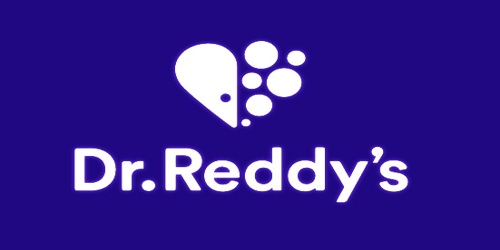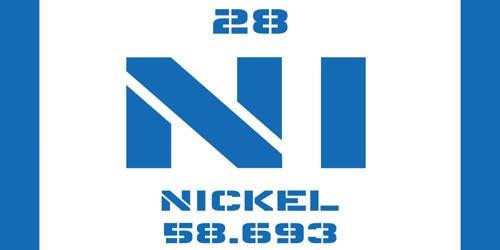After more than a year of continuing the initial temperature test survey, it is clear that expert investors are even more bullish on edtech. The bears are hard to find right now: in 2020, the global venture capital fund brought the sector $10 billion for an once-in-a-lifetime investment. As investors told us last week, the biggest customer opportunity in 2021 and beyond is lifelong learning (and portfolio firms have the advantage to prove it).
However, despite edtech’s voice, the second installment of our edtech survey shows that VCs feel that startups have not enjoyed parallel gains from an evaluation standpoint. The concept suggests that despite an apparent resurgence, the eyes of edtech investors are not at the same level of “quality” in the eyes of investors as in the case of e-commerce, consumer and fintech.
As Lightspeed Venture Partners’ Mercedes Bent said, ” edtech didn’t tend to be too valuable before the epidemic, and by 2020 I see edtech companies set reasonable prices for Silicon Valley; there’s still nothing like what we see in fintech.”
Now, evaluation is not everything – but they are nothing. Where edtech lacks impressive value, investors see it as a gain in exit opportunities. Many investors think that the exit environment will change dramatically in the next few years. We have already seen two edtech companies, Nerdy and Skillsoft, go public through SPAC in the last few months. Ownership of private equity is an interesting dynamic to be aware of here, especially as Vista recently scooped up PluralSight for $3.5 billion.
Here are the investors we spoke to with areas of interest and expertise: Deborah Quazzo, Managing Partner, GSV Ventures (a ClassDojo, degree, clever)
Ashley Bittner, founding partner, Firework Ventures (a future-of-work fund with portfolio companies LearnIn and TransfrVR)
Jomayra Herrera, principal, Cowboy Ventures (a generalist fund with portfolio companies Hone and Guild Education)
John Danner, managing partner, Dunce Capital (an edtech and future-of-work fund with portfolio companies Lambda School and Outschool)
Mercedes Bent and Bradley Twohig, partners, Lightspeed Venture Partners (a multistage generalist fund with investments including Forage, Clever and Outschool)
Ian Chiu, managing director, Owl Ventures (a large edtech-focused fund backing highly valued companies including BYJU’s, Newsela and Masterclass)
Jan Lynn-Matern, founder and partner, Emerge Education (a leading edtech seed fund in Europe with portfolio companies like Aula, Unibuddy and BibliU)
Benoit Wirz, partner, Brighteye Ventures (an active edtech-focused venture capital fund in Europe that backs YouSchool, Lightneer, and Aula)
Charles Birnbaum, partner, Bessemer Venture Partners (a generalist fund with portfolio companies including Guild Education and Brightwheel)
Daniel Pianko, co-founder and managing director, University Ventures (a higher-ed and future-of-work fund that is backing Imbellus and Admithub)
Rebecca Kaden, managing partner, Union Square Ventures (a generalist fund with portfolio companies including TopHat, Quizlet, Duolingo)
Andreata Muforo, partner, TLCom Capital (a generalist fund backing uLesson)
Deborah Quazzo, managing partner, GSV: How has the edtech’s boom affected your business? Has the new interest from generalist investors made value worse, or is market growth helping everyone?
We have met with more than 800 seating teams at COVID around the world with Zoom. We have invested in 14 new companies and are finishing the round in two more. Assessment pressures across technical fields. I argue that there is still no average technology for education and the question for edtech is whether there is a potential for a $100 billion company in this sector- will TAMs support it.
Edtech’s tradition has rarely come out historically. When do you expect to see this change? Have you been optimistic about the strength of the fund lately? On the other hand, what integration do you expect to see? The exit volume is already growing with a wide range of strategic and financial buyers from edtech companies – something that did not exist before. You will see many high-value outflows in the first half of 2021 It’s a public market “exit” that’s really lagging behind and I hope it turns around in 2021 and 2022 creates dynamic.
Jomayra Herrera, principal, Cowboy Ventures: How has the edtech boom affected your business? Has the new interest from generalist investors made value worse, or is market growth helping everyone?
Edtech has a history of booming (when investors find new excitement for the sector) and buses (when investors perceive difficulty in scaling firms in space). We are going through an upswing now, which I think is an overall good thing for market innovation. Although evaluation is now costly across all sectors, I think more capital is moving towards innovation in a sector that affects everyone’s lives, which will result in a net positive. We have a history of investing in the sector and we will continue to do so as new, division-defined firms emerge.
Edtech’s tradition has rarely come out historically. When do you expect to see this change? Have you been optimistic about the strength of the fund lately? On the other hand, what integration do you expect to see?
Edtech has had many exits, but they are usually small and usually stay in PE companies or firms that have large distribution channels. There are very large IPOs. I think we are starting to see bigger exits for three primary reasons: (1) online customer engagement and hybrid education will increase market size, (2) We will see shorter sales cycles and more budgets as academics and institutions feel comfortable acquiring technology in their practice. I hope further integrate into the bootcamp space. We have already seen it achieved with the Flatiron, the Thinkers, the General Assembly, the Bloc, and many more.
















